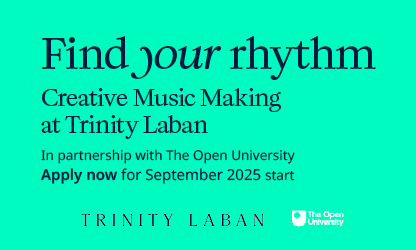Insiders Anonymous: The country house opera usher
A few years ago I reached retirement age and had to step down from my job, even though I didn’t want to. This wouldn’t be legal nowadays, but there we go. I have, however, found further employment – as an usher in a beautiful summer opera house. I love it because I can listen to all the operas, obviously.
It’s quite a glamorous environment – I think most UK opera houses are, in one way or another. It’s a beautiful atmosphere, a smart atmosphere, and you see the punters wearing pretty clothes. The pay is lousy and the hours are long, but I think the theatre depends on that: they rely on people wanting to be there to see the performances, and I think everyone simply assumes that you like it so much that you will stay anyway. The turnover of ushers is indeed quite small – people tend to come back year after year, though it so happens that this time a number of the older ones left and a new intake of much younger people has come in.
You are occasionally asked odd questions by the public, but it’s very rare. Mostly it’s just about lost property, or where something is. The manner in which you address them is an interesting point. I don’t like to call them ‘Sir’ or ‘Madam’. I feel that the proprietors of our theatre want us to greet the public as our friends – we are welcoming them to our wonderful opera house – and I think that’s much more important than fawning around with ‘Sir’ and ‘Madam’. Besides, I suspect that the kind of people who come here don’t like those terms in any case.
You might expect our punters to act high and mighty, but I believe that the higher and mightier you really are, the less you want that sort of thing. As for us, you can be incredibly polite towards somebody without using those terms. If someone were to ask me a question and then I needed to call him back while he was turning away, I would say, “Excuse me, Sir,” but if he’d simply come up to me I wouldn’t say, “Hello, Sir, what can I do for you?” I feel it would be demeaning. We’re not shop assistants. We’re ushers.
There are about 50 of us in total – we each work two or three days a week and between us we have to cover all the entrances, the extra buildings, the archives and more. We have a great sense of camaraderie and enjoy eating together during the break – and we include a wide range of high-quality individuals from many walks of life. Amongst us we have PhDs, anaesthetists, doctors, surgeons and even musicians. One of the new young girls has a scholarship to go and study music in the US. Sometimes other members of staff or some of the musicians will come and join us and I love that.
Most of us are reasonably local. Some people come from the bigger nearby towns, but it wouldn’t be worth anyone’s while to do a longer commute, especially as the opera usually finishes after 10pm. I suppose it would be possible that in other venues an usher might experience interpersonal problems with a difficult line-manager, but I’m glad to say that nothing of the kind happens here.
The one, only and extremely mild downside is that sometimes you have to listen repeatedly to operas you don’t particularly like. You have to sit in on the days you’re on duty, so you do it, unless you manage to swop dates with one of the other ushers. Personally I am not so keen on the less melodic operas, but perhaps my taste is not sophisticated enough.
I adore Eugene Onegin – it is just wonderful! – and all the Mozarts, but I am less enthusiastic about Benjamin Britten. And I once had to sit through Carmen four times. It is wonderful, of course, but it feels somewhat less fresh by the end of the run than it did at the beginning. It makes me very angry, though, when the critics give dismissive reviews to productions that are actually quite brilliant.
What never ceases to amaze me, though, is the resilience of the British public in the face of what passes here for summer. The British love picnics! They simply like to be outside to eat. If you had a scarf tied round your eyes and when it was taken away you found you were in a field that’s horribly cold and there was sheep poo around, still the first thing you’d see would probably be an English couple sitting there picnicking and thinking it was wonderful.
This article was originally published in the July issue of Classical Music magazine, a Rhinegold Publishing title. Find out more about Classical Music at www.classicalmusicmagazine.org or subscribe at rhinegold.subscribeonline.co.uk



